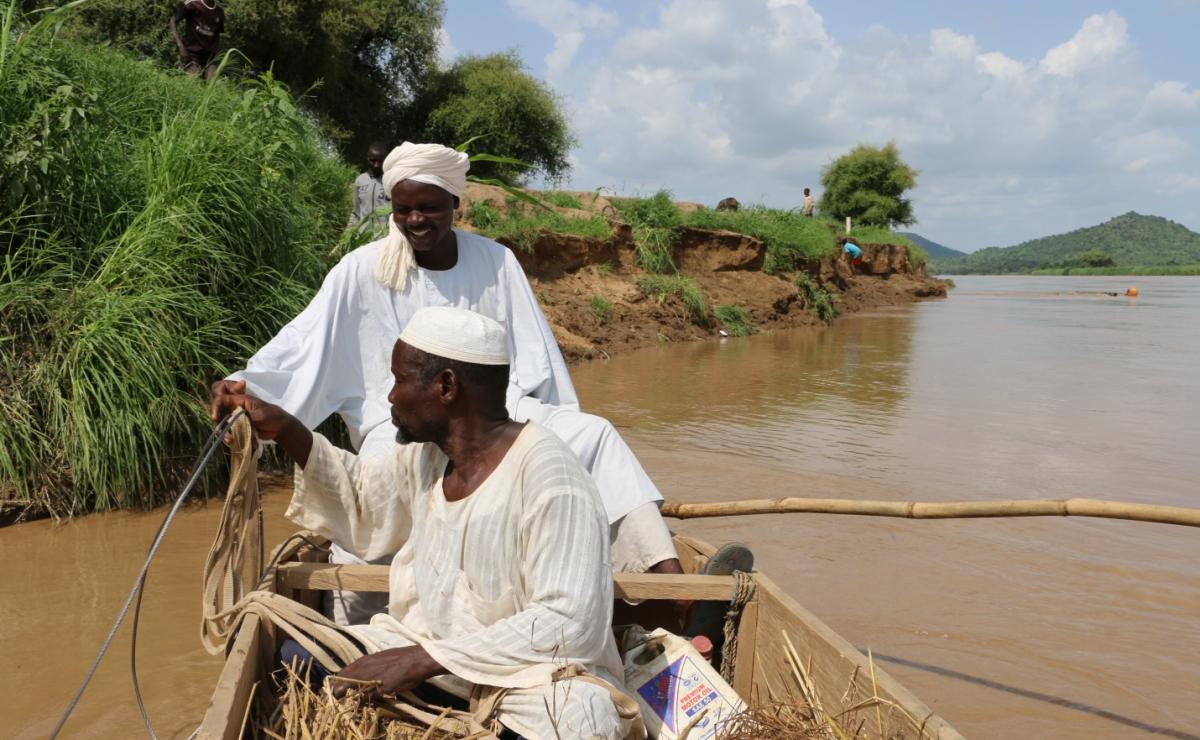Sowing in the ground, reaping on the river

ARADIB(Chad)/ GENEVA, 1 September 2016 (LWI) - ‘‘Hold the rope, firmly, pull, pull!’ Djouma Ousmane shouts as he paddles a small barge. Standing on the edge of the river Bar Azoum, a young man pulls a rope tied to the barge. After some manoeuvres, Djouma manages to stabilise the small boat alongside the river. Passengers can get off. These scenes are typical of routine activities for ‘Al Rey’ group members in Aradib village, Goz Beida, Eastern Chad.
To get there, Djouma – the leader of the Al Rey group – a few months earlier persuaded the members to purchase a small barge with revenue they had saved from selling their harvest. With carrying capacity of 14 passengers and three metric tons loads, the barge cost them 414,500 CFA (about €638). They could not have afforded that amount without.
Creating opportunities for self-sufficiency
The “Al Rey” ferry service is only one example of the innovative project: ‘‘Seeds for Solutions’’ introduced by The Lutheran World Federation (LWF) together with the UN refugee agency, UNHCR. The project helps long-term refugees and host communities to become more self-sufficient and less dependent on humanitarian assistance.
In a country prone to effects of climate change, like recurrent droughts, this initiative creates opportunities for livelihoods diversification so refugees become resilient, while integrating in their host communities.
In 2015, LWF, working together with community leaders, secured 28 ha of farmland to set up a vegetable garden in the Aradib neighbourhood. With support from UNHCR, LWF protected the garden with a fence and equipped it with an ecological solar watering system. LWF also provided seeds and agricultural tools to the farmers.
Djouma, the young man from the boat, teamed up with 26 other people, a mixed group of refugees and locals. Together they formed a farmer’s group named Al Rey – the local Arabic word for “gardening”. The group members sowed tomatoes, onions, potatoes, garlic, and other vegetables.
Impressive results
A few months later they could harvest their first crop. After deducting family consumption and the individual incomes, the group could sell a collective surplus of 390,000 CFA (about €600) from selling the harvest. ‘‘We bought a barge with our revenue. Now we use it for transport of persons and goods and we earn about 5,000 to 15,000 CFA [8 to €23] per day’’ says Djouma Ousmane, the leader of the Al Rey group. ‘‘We use the money to meet our family needs. We are planning to produce and sell even more vegetables this year. After the next harvest [December to March], we will buy one or two more boats”.
More than 1,000 farmers like Ousmane benefited from agricultural support in areas where the ‘‘Seeds for Solutions’’ project is being implemented. The farmers produced nearly 1,600,000 kilograms of vegetables, which equals an income of €470,000. ‘‘Our intention is to make sure the poor and marginalized are not objects of charity but have the opportunity to a life in dignity’’, says Adamou Koumanda, LWF Representative in Chad. “The Al Rey group is a good example of how people can use our support to within a very short time become self-reliant, generate work and make their own decisions. We will now start this project in other parts of the country as well.”
The project “Seeds for Solutions” is supported by the United States Bureau of Population, Refugees, and Migration(BPRM) and the United Nations High Commissioner for Refugees (UNHCR), and implemented by LWF, a member of the ACT Alliance.

